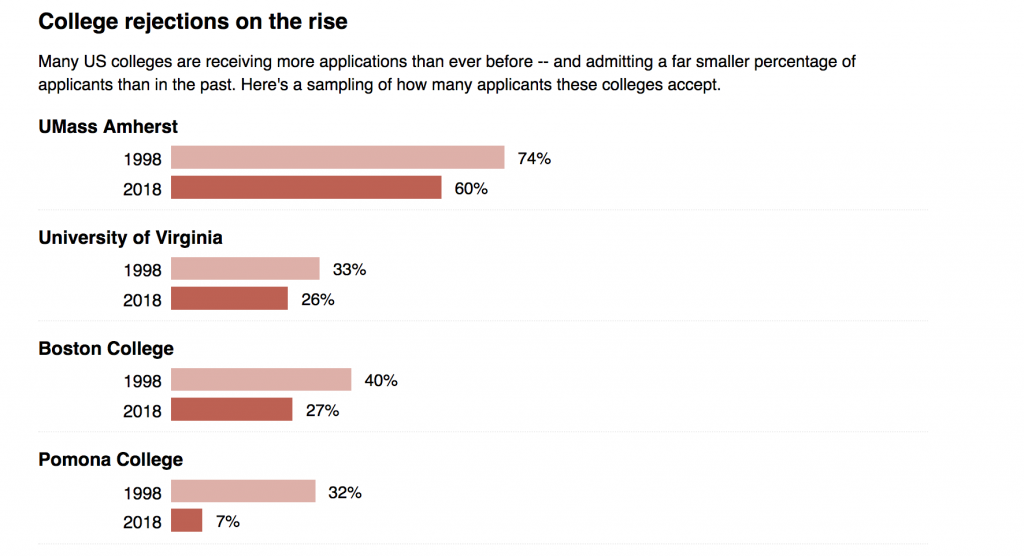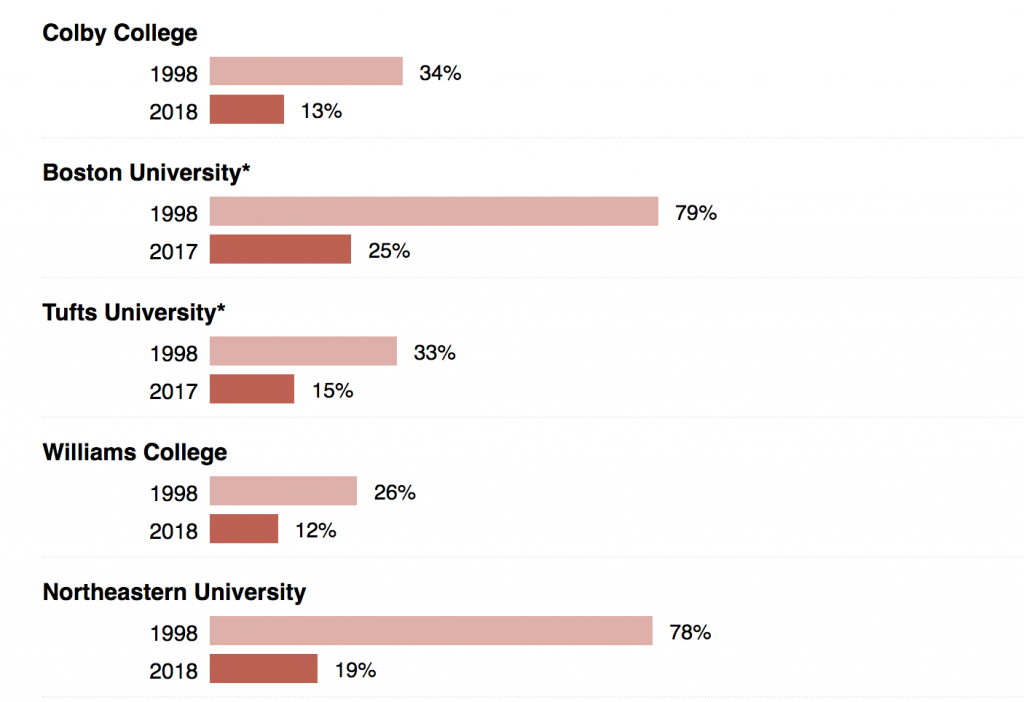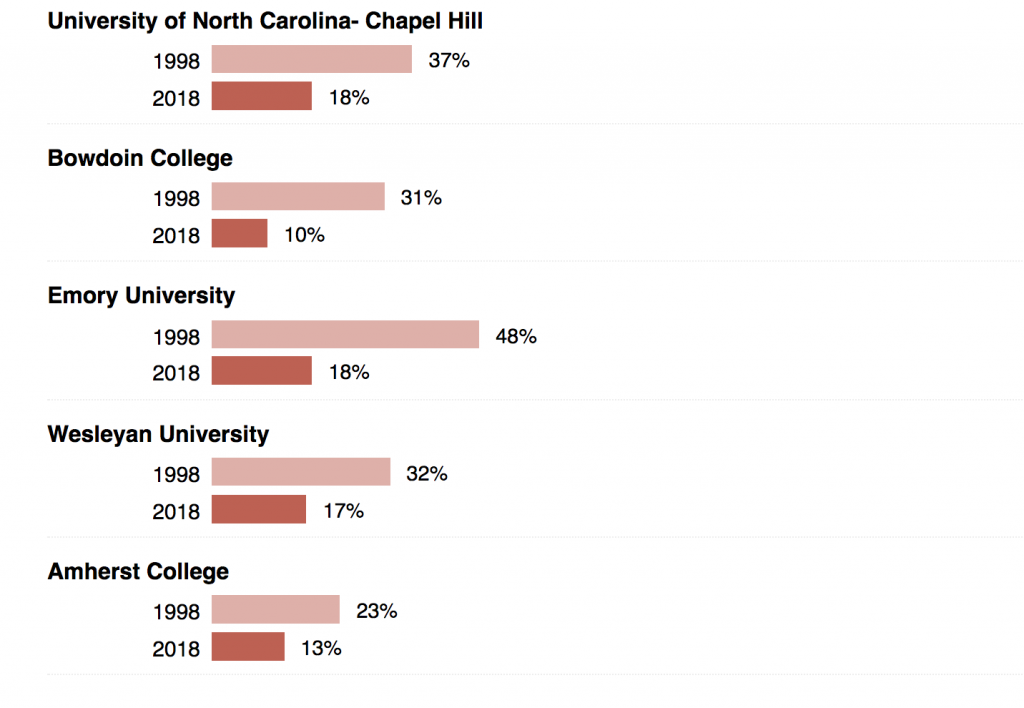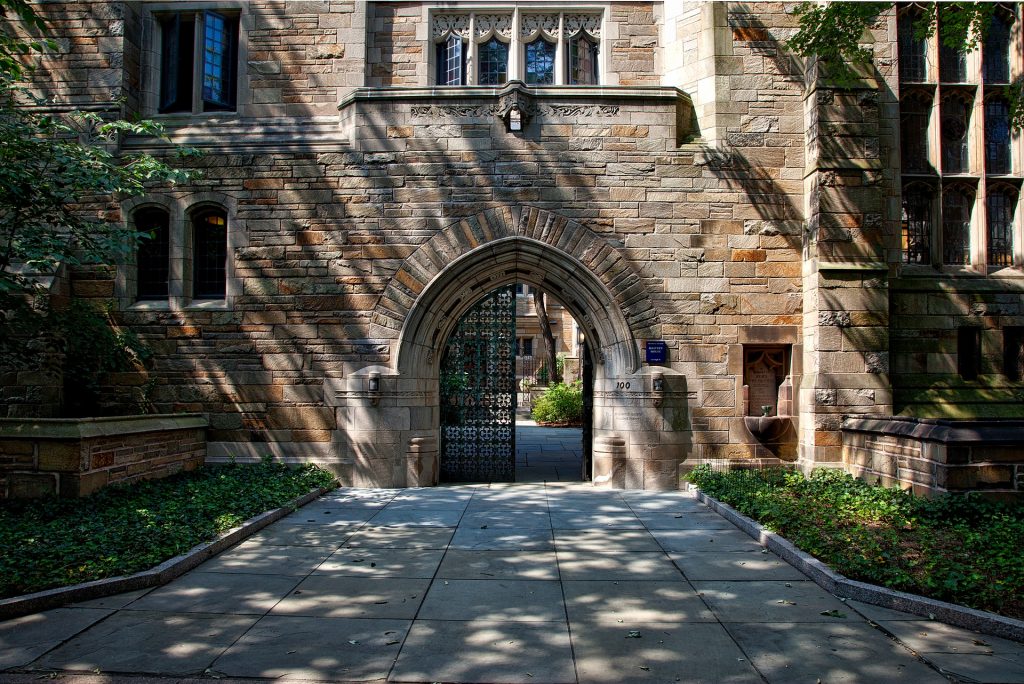
The college search doesn’t have to begin and end with the Ivies and the name brand schools. There are many schools out there to choose from—some known and some less known, all worthy of your attention. Here’s some advice for trying to find the school that works for you from Martha O’Connell, the executive director of Colleges That Change Lives.
1. Start with who you are and why you are going.
You need to examine yourself and your reasons for going to college before you start your search. Why, really, are you going? What are your abilities and strengths? What are your weaknesses? What do you want out of life—something tangible or intangible?
Are you socially self-sufficient or do you need warm, familial support? Talk with your family, friends and high-school counselors as you ask these questions. The people who know you best can help you the most with these important issues.
2. Size matters: Your college does not have to be bigger than your high school.
Most good liberal arts colleges have a population of fewer than 4,000 for a reason; college is a time to explore, and a smaller community is more conducive to internal exploration. It is not the number of people, but the people themselves and the kind of community in which you will learn that really matters. Many large universities have established honors colleges within the larger university for these same reasons.
3. A name-brand college will not guarantee your success.
Think about the people in your life who are happy and successful and find out where (and if) they went to college. Ask the same about famous people. You will likely find that success in life has less to do with the choice of college than with the experiences and opportunities encountered while in college, coupled with personal qualities and traits.
Employers and graduate schools are looking for outstanding skills and experience, not college pedigree. As you search for colleges, ask about student outcomes; you will find many colleges that outperform the Ivies and “name brands,” even though you may have never heard of them! Visit the National Survey of Student Engagement (NSSE)for help on sorting through the information and for great questions to ask when visiting and choosing a college.
4. You dont need to pick a major to pick a college.
Very few high-school students have enough information or experience to choose a major. You need the variety and depth of college coursework to determine your interest and aptitude. Most college students change their minds two or three times before they settle on a major, and they can still graduate in four years! Being undecided is a good thing and will leave you open to more academic experiences.
5. Dont be scared by the stories.
If you only pay attention to the headlines, you might start to believe that no one is getting in anywhere! The truth is that the majority of the colleges and universities in this country admit more students than they reject. If you’re worried about your chances of getting admitted—and you’re willing to investigate beyond the very narrow band of highly selective colleges—you’ll find that you have many options that will lead to a great fit for you.
Be informed about your academic profile and compare it to the profile of the most recently admitted and enrolled class for the colleges you are investigating. Check the college admission Web site for this information and contact them if you can’t find it. Ask your high school counselor for additional advice and guidance as it applies to your school.
6. You can afford to go to college.
If you make the assumption that you cannot afford college based on the sticker price of tuition, you will miss out. It is difficult to talk about money, but if you investigate all the options and ask for help and advice, you will find affordable choices. Online resources, as well as financial aid workshops sponsored by high schools in local communities, are widely available to get you started. College and university financial aid Web sites offer useful information and links as well. Investigate early and ask for help.
7. You dont have to go to college right away, and it’s never too late.
There is no such thing as the perfect time to start college. Some students benefit from a year off to work, study or travel, and these experiences allow them to be better, more engaged students. Some students choose to apply to college and gain admission and then defer their entrance, while others wait to apply until after they have had an alternative experience.
Either way, admissions officers will be anxious to learn about your experience during your time off, and they’ll ask you to write about it as part of your admissions process. High-school and college admission counselors can provide resources for investigating alternatives that may be right for you. You could apply for an internship, study abroad, or participate in a community service project.
8. The most important factor in choosing a college is fit.
Choosing a college because your friends are going there or because of where it ranks on a list does not take into account who you are and who you will become. College is a match to be made, not a prize to be won. Finding a good fit requires time and thoughtfulness.
Visiting college Web sites and learning about what events take place, who visits as guest speakers, and how to get in touch with current students and faculty is a good way to supplement a campus visit or to decide if you want to spend the time and money on a visit. Check a school’s Web site to find the admissions officer assigned to your region of the country. Send them an e-mail to ask about getting in touch with students from your area or identifying a few with interests similar to yours.
When you visit, try to build in time to sit in on classes, eat in the dining hall and hang around in the student center or other high-traffic areas. That will help you imagine yourself as part of the community. Talk to a few students and ask if they would make the same college choice if they had to do it again. Go back to the first item in this list as you consider the information youve collected about the colleges. You will have great options!
—
Can you believe that this article is over TEN years old?!? Well, it is, and it’s more relevant than ever. Written by Martha O’Connell, the executive director of Colleges That Change Lives, an organization that helps students identify colleges that could be a good match for them—it’s a must read! Thank you, Martha.










